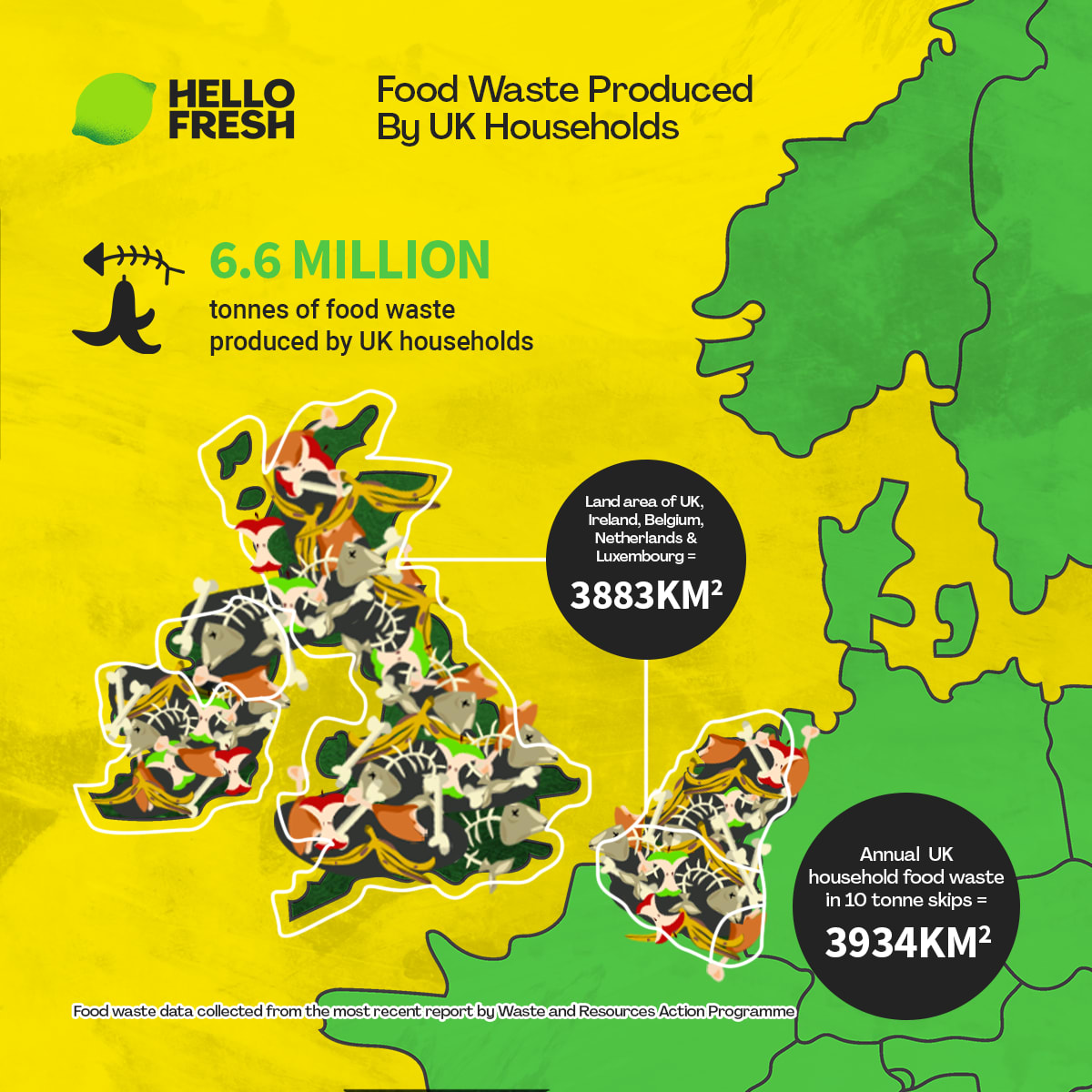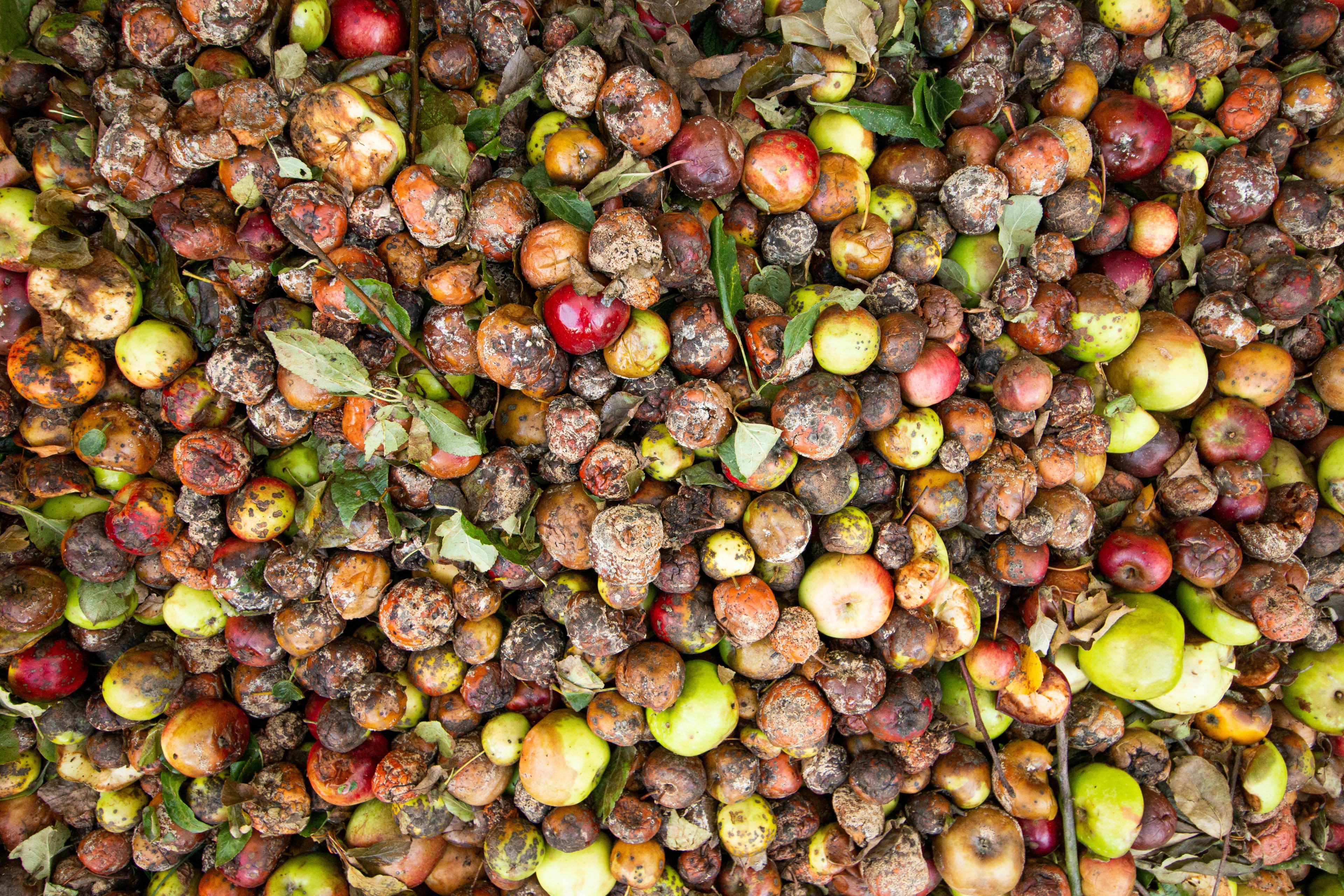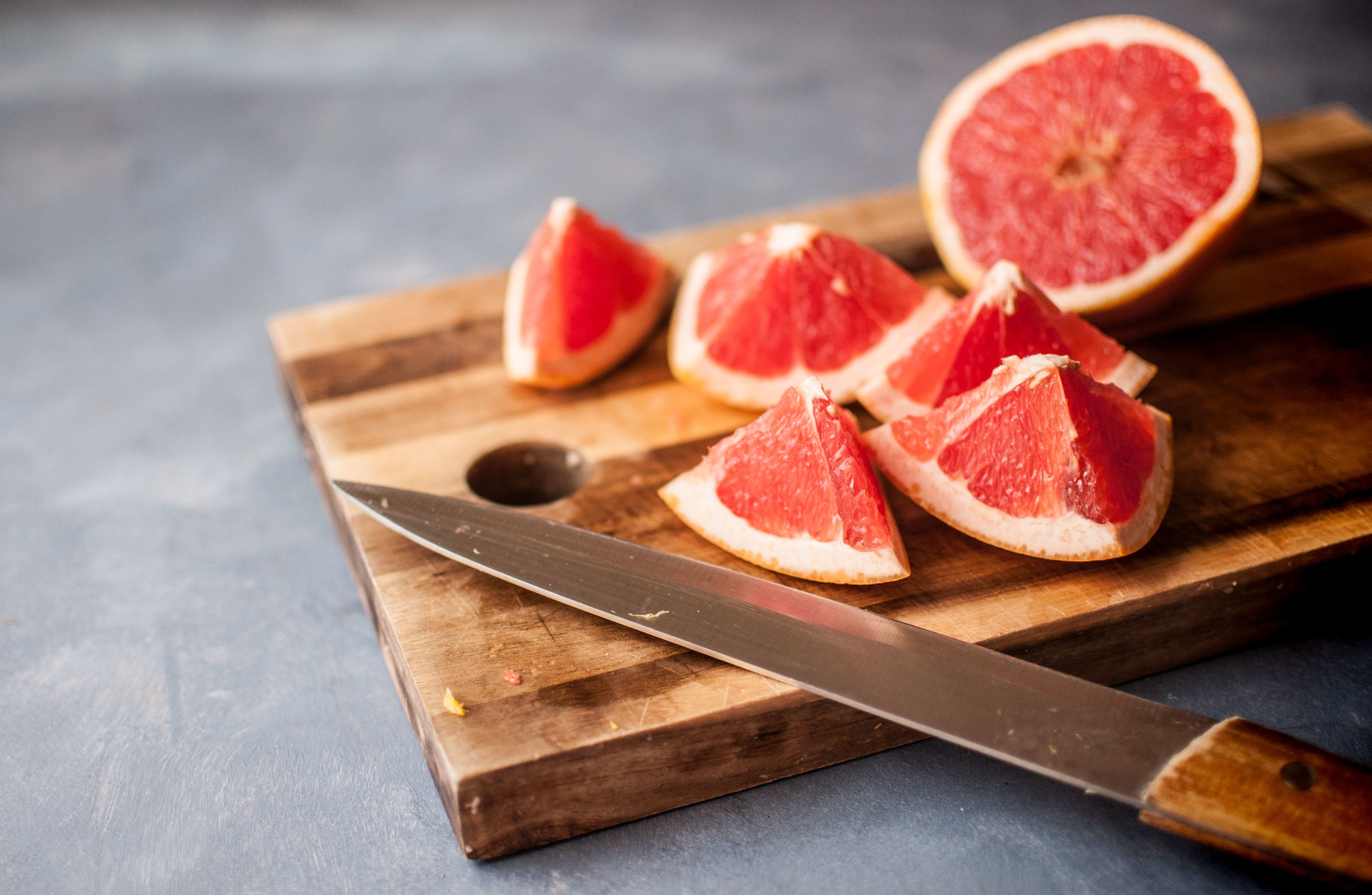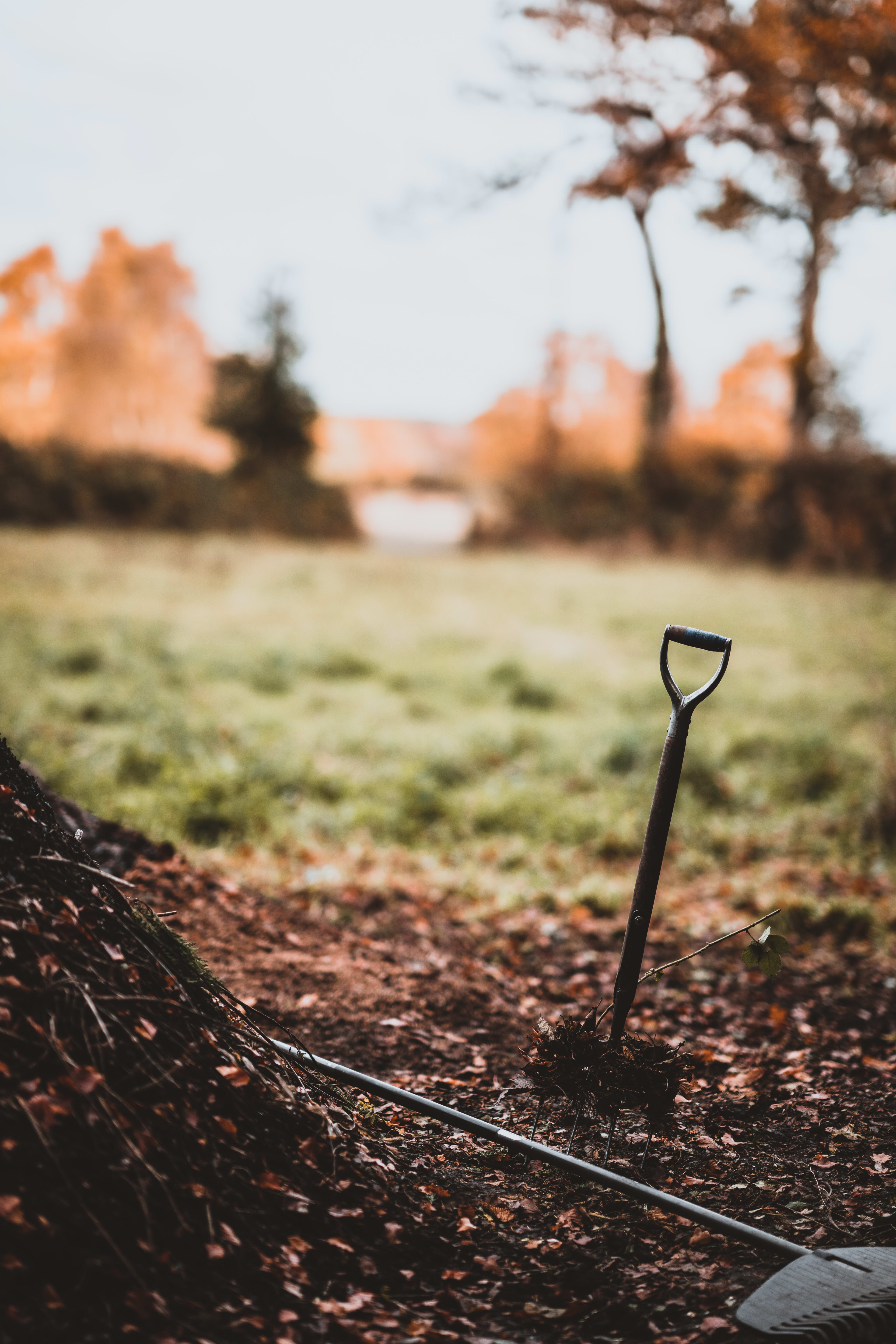The UK's Household Food Waste
This is all the more important at the moment, as we see food waste in the UK at an all-time high. According to the <a href="https://wrap.org.uk/resources/report/food-surplus-and-waste-uk-key-facts">most recent report</a> by waste reduction and sustainability charity WRAP, in the UK alone, we produce 9.5 million tonnes of food waste. Of this, 6.6 million tonnes (70%) comes from households, 1.5 million tonnes (16%) from manufacturers, 1.1 million tonnes (12%) from hospitality and food service (HaFS), and 0.3 million tonnes (3%) from the retail industry. <br><br>
The food waste produced by UK households alone each year would cover the entire surface area of the UK, Ireland, Belgium, Netherlands and Luxembourg collectively (3883km²). The average UK household throws away enough food to feed five extra adults every week.


What Happens To Food Waste?
Food waste that is not recycled may be sent to landfill where it rots. Rotting food has a massive detrimental impact on the environment as it releases methane.According to Recycle Now, some local councils send their non-recyclable waste to be incinerated to create useful energy. However, as food waste is made up of approximately 70% water, it requires considerably more energy to burn, making this an extremely less efficient method of disposal than recycling or home composting.
How To Reduce Food Waste

From planning your meals ahead, to storing food correctly, here are our top tips on reducing food waste and using up leftovers.
A great starting point for reducing your food waste is to plan your meals ahead and only buy the ingredients you need. This way, there is minimal surplus food and waste. Using leftovers for sauces, curries, smoothies, salads and pastas is also a wonderful way to reduce your food waste, should you have anything left after a meal. For example, you could spice up leftover cottage pie with a spoonful of curry paste and use it to stuff pasties.
To reduce your food waste, sometimes you have to get a little creative. For example, use past their best grapefruits in your garden to attract slugs and keep them away from your plants, or use eggshells in the garden as they contain a natural calcium powder that is similar to fertilisers.
A great starting point for reducing your food waste is to plan your meals ahead and only buy the ingredients you need. This way, there is minimal surplus food and waste. Using leftovers for sauces, curries, smoothies, salads and pastas is also a wonderful way to reduce your food waste, should you have anything left after a meal. For example, you could spice up leftover cottage pie with a spoonful of curry paste and use it to stuff pasties.
To reduce your food waste, sometimes you have to get a little creative. For example, use past their best grapefruits in your garden to attract slugs and keep them away from your plants, or use eggshells in the garden as they contain a natural calcium powder that is similar to fertilisers.

Make sure to store your food in optimum conditions for prolonged shelf life, taking light levels, temperature and oxygen into account. Recent TikTok trends show storing carrots on a bed of onion skins and taping over the top of a tomato when it’s been removed from the vine will prolong their shelf-life by weeks.
It’s also important to take some time to understand food labelling - ‘best before’ and ‘use by’ are very different things. Use-by dates are deadlines but best before dates are guidelines, for when to eat your food - this golden rule will help you reduce your food waste no end.
You could also try your hand at growing your own fruit and vegetables at home. Even if you don’t have any outside space available, a windowsill with access to light is all you need to grow indoors. Then, you can plan your meals around what’s in season and pick only the ingredients you need for each meal.
Batch cooking and freezing meals, not only reduces waste but saves you time in the future. If you’re pushed for time one evening after work or need a speedy lunch, defrost a batch you cooked on a previous day and enjoy! Or perhaps share some of your food with a neighbour, friend or family member. For example, if you live alone but you’ve made a full cake, why not ask your neighbours if they’d like a slice? Suddenly you’ve reduced your food waste and you’re the most popular person on your street!
Finally, if you really have no other option than to dispose of your food waste, make sure to compost it. Composting the food waste you do have gives nutrients back to the earth and in turn reduces your carbon footprint. Kitchen and garden waste like grass clippings, kitchen scraps and even coffee grounds will naturally decompose and create nutrient-rich compost that will nourish your garden. Not only will following these tips save you time and money, but they’re small steps we can all take to address the wider problem of food waste in the UK and its impact on the environment. Producing, moving, storing and cooking food uses energy, fuel and water which emit greenhouse gases. Reducing your food waste is a significant step in tackling climate change.
It’s also important to take some time to understand food labelling - ‘best before’ and ‘use by’ are very different things. Use-by dates are deadlines but best before dates are guidelines, for when to eat your food - this golden rule will help you reduce your food waste no end.
You could also try your hand at growing your own fruit and vegetables at home. Even if you don’t have any outside space available, a windowsill with access to light is all you need to grow indoors. Then, you can plan your meals around what’s in season and pick only the ingredients you need for each meal.
Batch cooking and freezing meals, not only reduces waste but saves you time in the future. If you’re pushed for time one evening after work or need a speedy lunch, defrost a batch you cooked on a previous day and enjoy! Or perhaps share some of your food with a neighbour, friend or family member. For example, if you live alone but you’ve made a full cake, why not ask your neighbours if they’d like a slice? Suddenly you’ve reduced your food waste and you’re the most popular person on your street!
Finally, if you really have no other option than to dispose of your food waste, make sure to compost it. Composting the food waste you do have gives nutrients back to the earth and in turn reduces your carbon footprint. Kitchen and garden waste like grass clippings, kitchen scraps and even coffee grounds will naturally decompose and create nutrient-rich compost that will nourish your garden. Not only will following these tips save you time and money, but they’re small steps we can all take to address the wider problem of food waste in the UK and its impact on the environment. Producing, moving, storing and cooking food uses energy, fuel and water which emit greenhouse gases. Reducing your food waste is a significant step in tackling climate change.